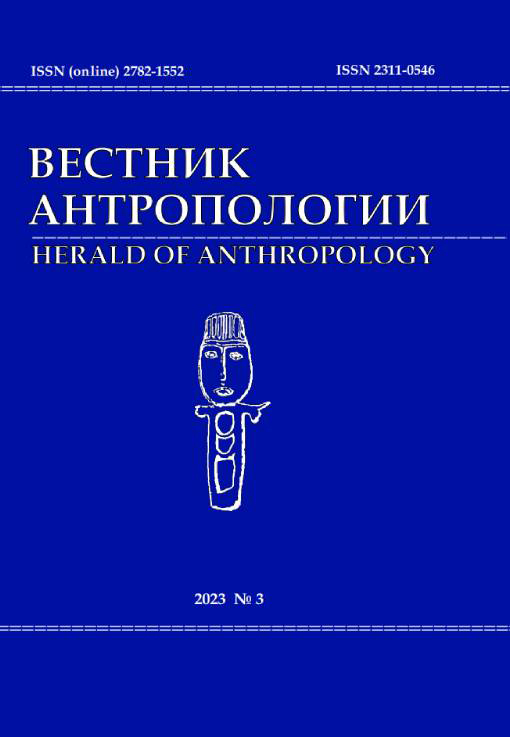Anthropogenetic Studies of Evenk Populations
DOI: 10.33876/2311-0546/2023-3/338-353
Keywords:
Evenks, population, biochemical gene markers, DNA markers, adaptation, social and biological memoryAbstract
The article presents the results of anthropogenetic studies of the Evenks – a unique, small ethnic group of people who were nomadic in the past. Modern Evenks live in Russia, China, and Mongolia. Population and genetic structure of the Evenks of Central Siberia have been studied since the 1960s. Our study focused on the classic biochemical markers of Alb, Tf, Gc, Нр, GLO1, PGM1, EsD and AcP genes in the populations of the indigenous peoples of the Evenk Autonomous District. It has been established that the combination of the gene frequencies in the studied population is uncharacteristic for groups of Asian ancestry. This Middle Siberian complex was shaped as a result of adaptation to environmental conditions. More recent studies of differences in the DNA markers have introduced new valuable genetic information. Their results suggest that the settlement of Evenks on vast territories, their intensive contacts with different populations, and the territorial remoteness of Evenk populations from each other led to significant genetic differences between them. However, the Evenks’ memory of their ancestral homeland and common origin proved more stable than their genetic structure. The social memory of the people turned out to be longer than biological memory.





















